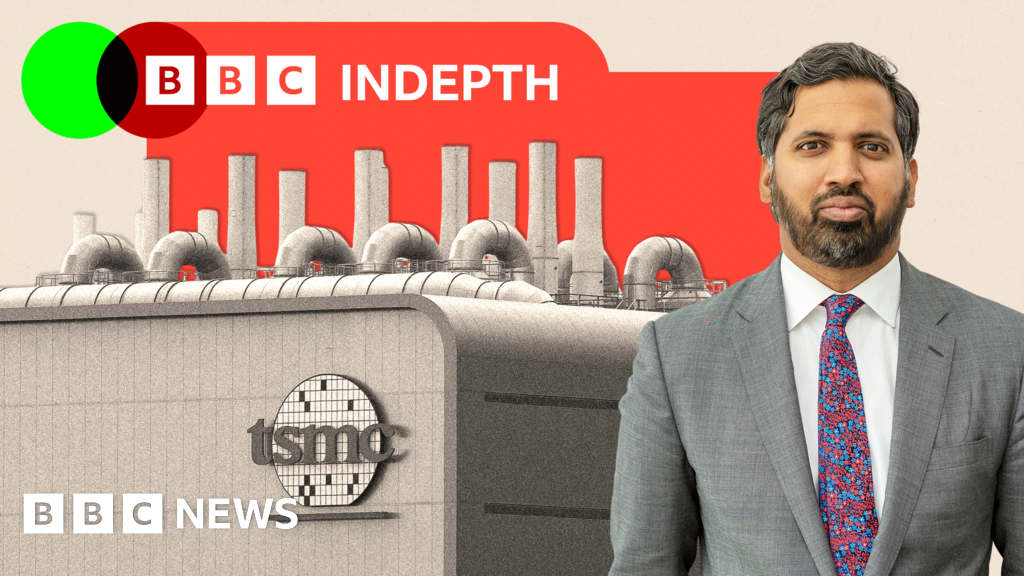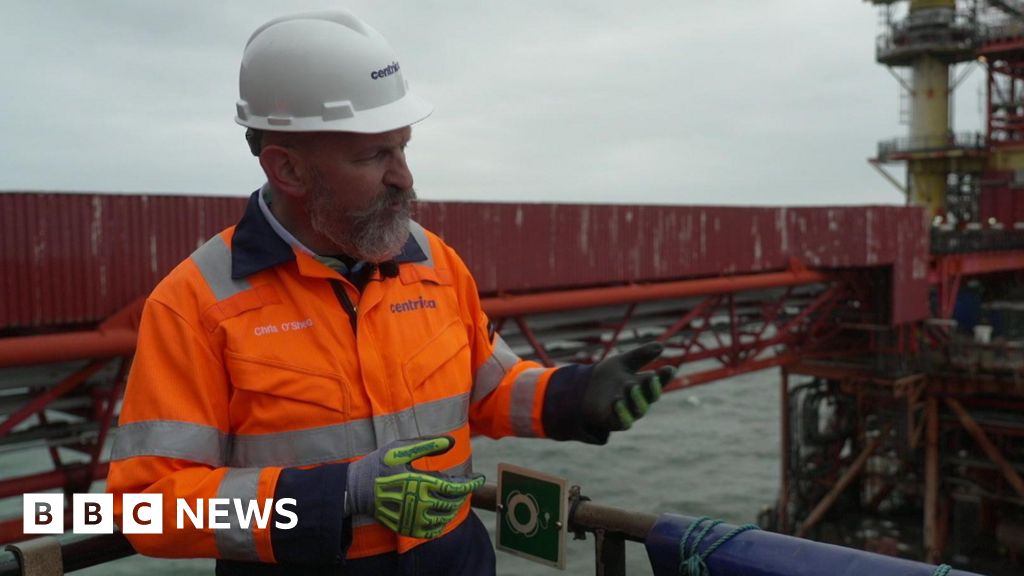ARTICLE AD BOX
 Image source, Getty Images
Image source, Getty Images
By Simon Jack
Business editor
Energy bills are likely to stay high for the foreseeable future, according to the boss of the company that owns British Gas.
Centrica chief executive Chris O'Shea said while he believes the worst of the energy crisis is over, risks remain.
A new price cap comes into effect this weekend which will see households with typical energy usage pay £2,074.
Mr O'Shea said prices have fallen from the rise caused by the Russian war, but are higher than the long-term average.
"I think the first act of the crisis is over," he said. "I think what we've got to remember is the energy prices had more than doubled before Russia invaded Ukraine.
"Now, prices are back down to pre-invasion levels but they're still two and a half times the long run average."
Gas and electricity bills will fall below the £2,500 level that was subsidised by the government under its Energy Price Guarantee scheme.
However, under the new price cap, which is set by the regulator Ofgem, households bills will remain £800 more expensive that two years ago.
Meanwhile, Cornwall Insight, a consultancy firm, estimates that changes in the price cap - which limits what companies can charge per unit of gas and electricity - will take energy bills for a typical consumer to £1,871 per year from October.
That is then forecast to rise to £1,900 from January.
Mr O'Shea was speaking to the BBC as Centrica announced it was doubling the amount of gas stored in its Rough storage facility off the coast of Yorkshire ahead of this winter.
Despite the extra storage, he said there was a danger that the UK risked being complacent about the resilience of the country's energy supplies which were still vulnerable to external shocks.
"I think that there's a danger that we get complacent because last winter was okay and because prices are quite stable now," he said.
"But when we had trouble between the Wagner group and the Russian military last week we saw energy prices go up by about 20%. Chinese economic activity at the moment is relatively low. If that starts to pick up we'll see more demand for gas in the form of LNG [Liquified Natural Gas], then we'll see European gas prices go up so there could be more volatility to come."
Centrica chief executive Chris O'Shea
The UK has some of the lowest gas storage levels in Europe.
The Rough storage facility, which is 18 miles off the coast of Yorkshire, was effectively mothballed in 2016 as new gas and electricity connections to Europe meant it was considered redundant.
It was brought back into partial service last October with three days' worth of the UK's average gas usage pumped in. From Friday, that will be doubled to six days' worth, bringing the UK's total reserves to 12 days.
"There is nowhere near enough gas storage, it could be more resilient," said Mr O'Shea. "But it's far better than it was. So we've doubled the capacity and we should really not lose sight of that this makes a huge difference."
In contrast, Germany has reserves of 90 days, France has 103 days and the Netherlands has 123 days' worth of gas.
Centrica said it would like to see Rough's capacity increased to 27 days' worth but that would require £2bn of investment which in turn, Mr O'Shea said, would require a government subsidy through a special pricing structure.
Looking ahead to winter, the Centrica boss acknowledged that many customers would find it difficult to pay energy bills at a time of rising food and housing costs.
British Gas came under fire earlier this year when The Times newspaper revealed that a contractor working for the company was force-fitting pre-payment meters in vulnerable customers' homes.
Force-fitting pre-payment meters was suspended across the industry for a time.
They can now be fitted again but Ofgem said customers must be given more chance to clear debts and forced meter fittings are banned in homes with residents all aged over 85.
Centrica is the subject of an ongoing Ofgem investigation. The company has brought its debt collection activities in-house but Mr O'Shea said there was still a problem in telling the difference between those who would not pay and those who genuinely couldn't.
He suggested the answer was to introduce a social tariff for the neediest customers funded from general taxation.
"The government support that was put in place with the energy price guarantee was incredibly helpful for people but it wasn't targeted," he said. "So it helped the richest as much as it helped the poorest in society.
"What we'd like to see is a social tariff put in place for those that need help most get the help most and those that don't get no help whatsoever."

 1 year ago
36
1 year ago
36








 English (US) ·
English (US) ·